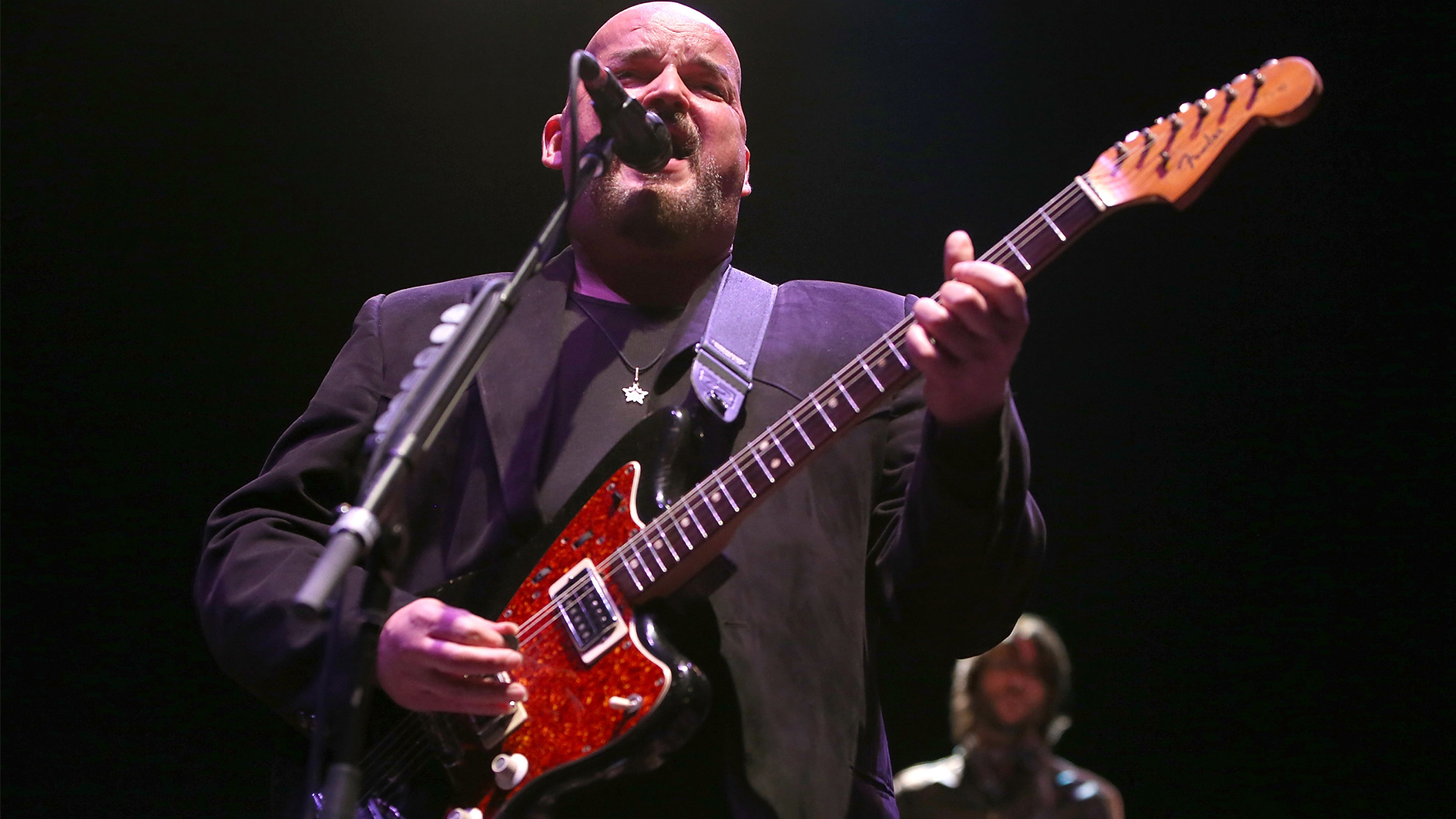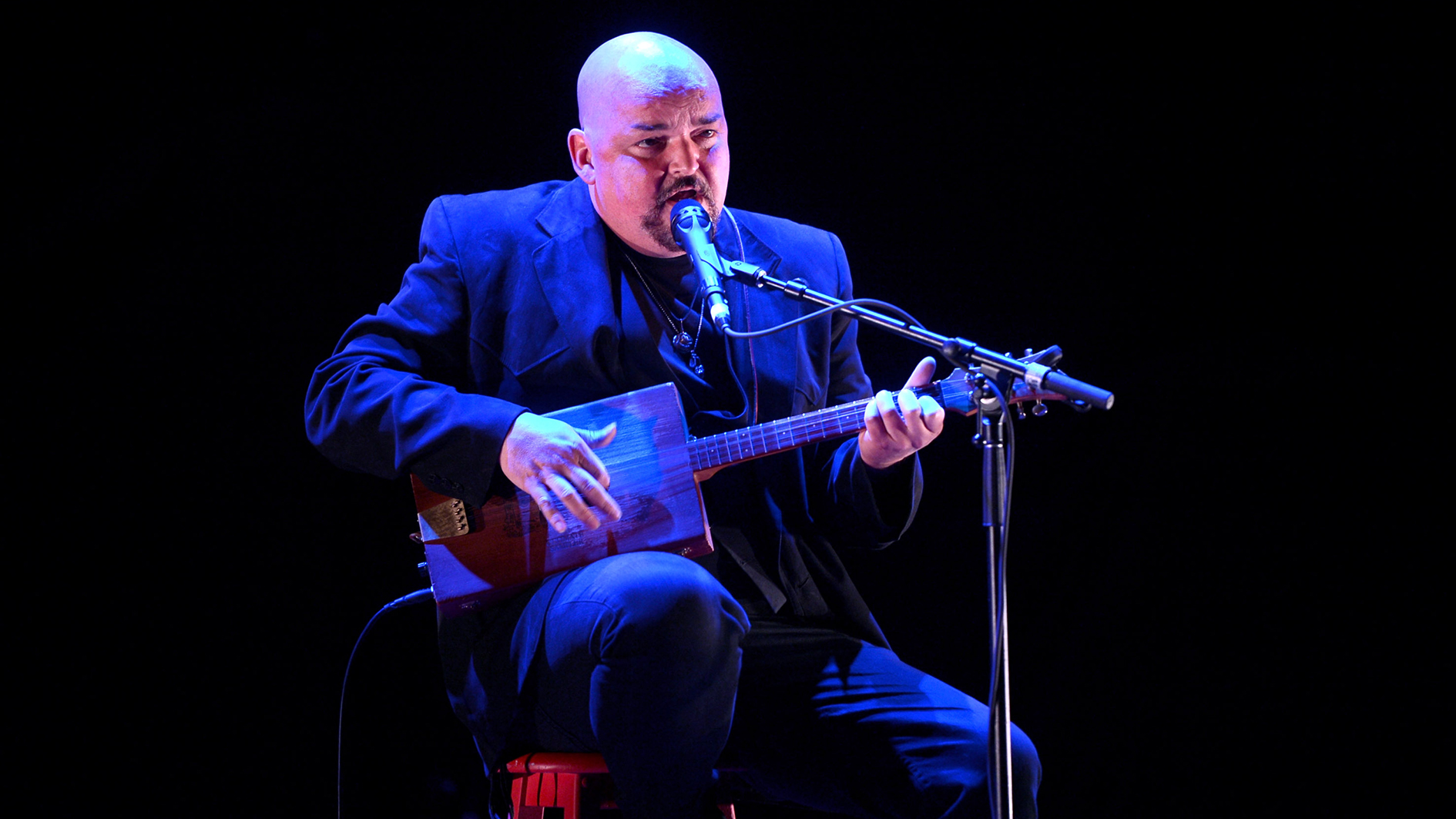Alain Johannes: "I have around 600 instruments and amps, but my Fender Jazzmaster is still my go-to"
The Chilean-American multi-instrumentalist on embarrassing stage moments, writing for video games and playing with Queens of the Stone Age and Chris Cornell

For over three decades, Alain Johannes has been the unsung guitar hero behind some of the biggest acts in rock, whether he's tearing up his trademark Jazzmaster with Queens of the Stone Age, Them Crooked Vultures and Chris Cornell, or lending a trusted ear when producing the likes of Jimmy Eat World, Brody Dalle and Mark Lanegan.
In this candid interview, Johannes gives Guitar World the lowdown on the big questions: his favorite sessions, most valued six-strings and his most embarrassing onstage moment.
What influenced you to pick up a guitar?
"It was a combination of my love for the Beatles - the singles were coming out in real time for me, because I was born in ’62 - and my uncle Peter, who was a multi-instrumentalist. When he showed up he would bring his instruments, and then when I was around four, I asked him to show me some chords and I started to pick out some tunes by ear."
What was the first guitar you owned?
"It was a flamenco guitar, because I was into Paco de Lucia as a kid. It wasn’t a super-fancy flamenco guitar, but it was pretty nice. That carried me through to my first electric, an SG I got when I was about 12.
"My mom got me that and an [Ampeg] Reverberocket for, I think, $500 at the Guitar Center in Hollywood when it was a little tiny mom-and-pop store. It’s now a cleaners or a print shop or something."
Get The Pick Newsletter
All the latest guitar news, interviews, lessons, reviews, deals and more, direct to your inbox!
What was the very first song you mastered?
"I would say Hey Jude. That was pretty nice because I got all the inversions and all the movements down properly. I was self-taught only by default - my uncle showed me a few chords, and then I went on my own.
"At one point when I was living in Mexico City I had a teacher, but he was kind of a dick and used to hit my hand with a ruler when I couldn’t make a barre chord without having it buzz.
"But I was a kid with a full-size flamenco guitar; my fingers weren’t big enough. After three months I told my mom, 'I don’t think schooling is for me.'"
What do you recall about your first time playing live?
It was just a great feeling of adrenaline and everyone looking at you and talking to you, and treating you slightly differently than just a few minutes before
"It was with [future Red Hot Chili Peppers members] Hillel Slovak and Jack Irons. We were 15 or 16, and we had just formed our trio, which was called Chain Reaction. We’d do Zeppelin, Cheap Trick, Heart, Rush, Aerosmith, Queen, all the stuff that was around on the radio.
"We played a friend’s party and we had no bassist - it was just two guitars and drums. And it was incredible because I realized that people noticed me in a different way. It was just a great feeling of adrenaline and everyone looking at you and talking to you, and treating you slightly differently than just a few minutes before. [Laughs]"
Have you ever had an embarrassing moment onstage?
"I’ve had a few. I guess the most embarrassing one was falling off a stool during a Queens of the Stone Age acoustic set. It was at a tattoo shop or a record shop, and it was pretty packed - everybody was right up on us. We switched instruments and I sat on a stool and kind of leaned backwards and went off and landed on the bass drum.
"Queens is the kind of band where you’re supposed to keep it cool and together all the time, and I didn’t. And then, of course, Josh [Homme, QOTSA frontman] made a joke about it. Not terribly at my expense, but just something to kind of alleviate my embarrassment - which actually made it worse!"

You’ve been involved with so many different bands, from Eleven to Queens of the Stone Age to Them Crooked Vultures, and have also played with artists like Chris Cornell and PJ Harvey. Is there one project that is particularly close to your heart?
"That would be my band Eleven, with my dearly departed soulmate Natasha [Shneider]. That’s a no-brainer because that was our passion.
"Other than that, I think making Euphoria Morning with Chris Cornell, when the three of us [Cornell, Johannes and Shneider] holed ourselves up in our home studio for seven months in secret and made that record, and then the consequent tour. That was a pretty magical period."
What is your favorite piece of gear?
I would also say that career-wise it’s good to learn some technical things like engineering, mixing, microphone repair
"I have like 600 instruments and amps and things, so it’s really hard for me to pick one. But I would say that the [Fender] Jazzmaster I’ve had since the Seventies is my go-to. It has such a tremendous personality, and it makes me play a certain way.
"I used it for the Them Crooked Vultures tour and for Sound City [with Dave Grohl], and I also use it with my band. Second would be the cigar box guitar that Matty Baratto made for me. It’s a really special and interesting-sounding instrument, and it’s the one I use to communicate my thank you and my love for Natasha with my solo stuff."
Do you have any advice for young guitar players?
"Don’t limit yourself to listening to one kind of music. I’ve developed my vibe as a guitar player from listening to everything, including other instruments and voice, and also from trying to communicate and emulate sounds in a non-guitaristic way.
"I would also say that career-wise it’s good to learn some technical things like engineering, mixing, microphone repair - anything that’s still within the realm of music that that can keep you going during those tough financial times. Because if I hadn’t paid attention since I was a kid and gotten into recording, I probably wouldn’t have been able to be a musician as my livelihood."
What do you have coming up?
"I’ve got another massive soundtrack - about 12 hours of music - that I did for [Tom Clancy’s] Ghost Recon Breakpoint. It’s my second soundtrack for a video game. The location for this one was Boliva, so it was more acoustic-based.
"It’s really fun working with the Ubisoft guys, because they’re very artistic and they want cool, interesting music. So that was exciting. And then I’m finishing up my next solo record, which will come out on Ipecac, hopefully in the spring."
Rich is the co-author of the best-selling Nöthin' But a Good Time: The Uncensored History of the '80s Hard Rock Explosion. He is also a recording and performing musician, and a former editor of Guitar World magazine and executive editor of Guitar Aficionado magazine. He has authored several additional books, among them Kurt Cobain: Montage of Heck, the companion to the documentary of the same name.
“I just learned them from the records. I don’t read tabs or anything, I don’t read music – I learned by ear”: How a teenage Muireann Bradley put a cover of Blind Blake’s Police Dog Blues on YouTube and became a standard bearer for country blues
“The Strat was about as ‘out’ as you could get. If you didn’t have a Floyd Rose, it was like, ‘what are you doing?’”: In the eye of the Superstrat hurricane, Yngwie Malmsteen stayed true to the original











